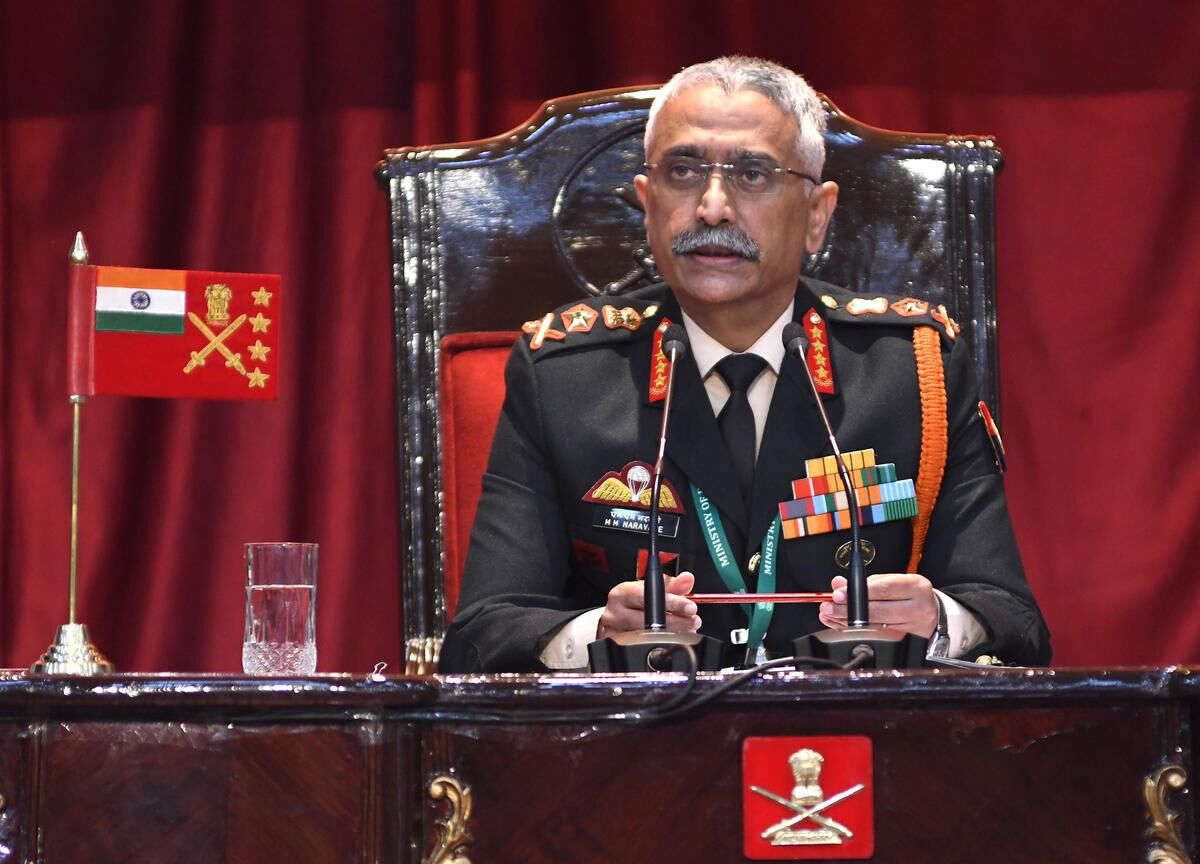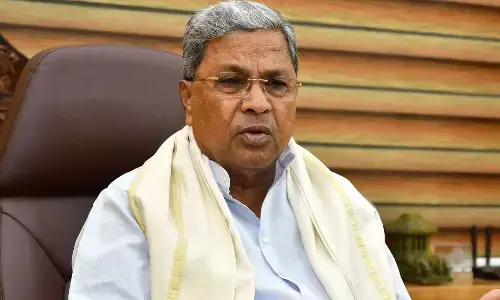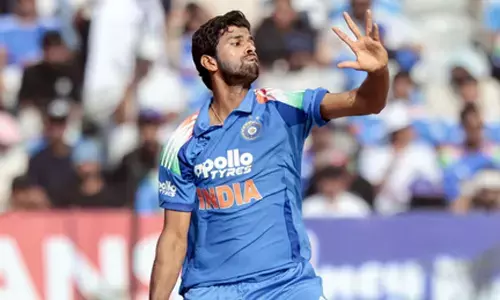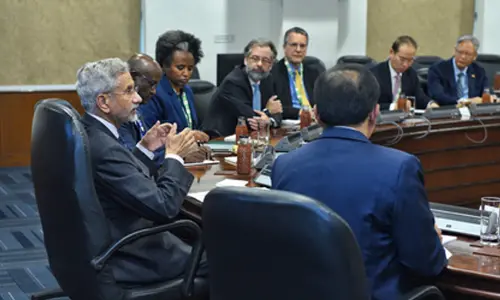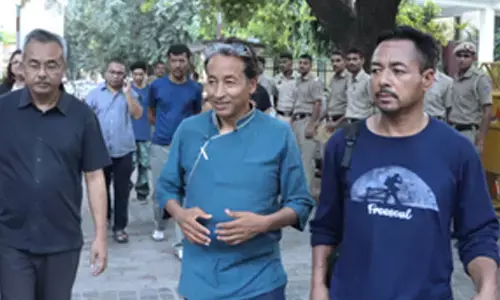Not satisfied with Centre's affidavit on pleas over media reporting: Supreme Court
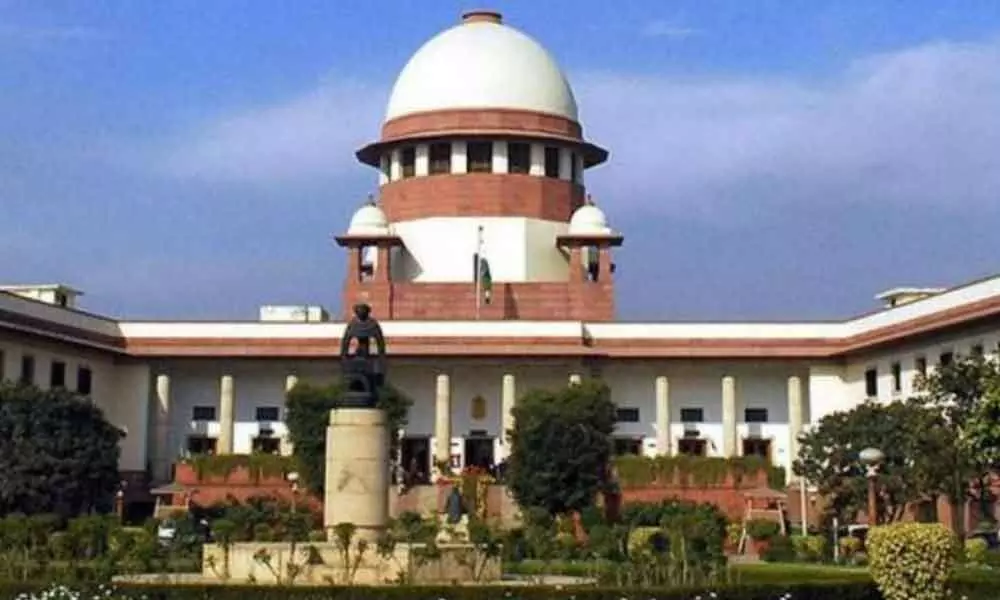
Supreme Court
The Supreme Court on Tuesday expressed displeasure over the Centre's affidavit in the case related to media reporting of Tablighi Jamaat congregation here during the onset of COVID-19 pandemic, and said the government should consider setting up a regulatory mechanism to deal with such contents on TV
New Delhi: The Supreme Court on Tuesday expressed displeasure over the Centre's affidavit in the case related to media reporting of Tablighi Jamaat congregation here during the onset of COVID-19 pandemic, and said the government should consider setting up a regulatory mechanism to deal with such contents on TV.
Observing that the Ministry of Information and Broadcasting's affidavit did not deal with the applicability of Cable Television Network Act (CTNA) in the case, the apex court said the government has the power to put a regulatory mechanism in place and it cannot be left to an outside agency like NBSA (News Broadcasters Standards Authority.
"We want to know the mechanism employed by you and this affidavit has nothing on it. Why should we refer to NBSA etc. when you have the authority to look into it. If it does not exist then you create an authority. We can also hand it over to an outside agency," said a bench headed by Chief Justice S A Bobde.
The top court, which was hearing the pleas filed by Jamiat Ulama-I-Hind and others alleging that a section of the media was spreading communal hatred over Tablighi Jamaat congregation during the onset of pandemic, asked the Centre to file a fresh affidavit dealing with mechanism to regulate electronic media under the CTNA.
The congregation at Nizamuddin Markaz in the national capital in March, attended by thousands of Indian and foreign nationals, was cited as being responsible for accelerating the spread of coronavirus or COVID-19, with its attendees allegedly carrying the infection to different parts of the country.
Solicitor General Tushar Mehta, appearing for the Centre, referred to the freedom of speech and expression of the media and said that NBSA is a part of the self-regulatory mechanism. The apex court however asked the Centre to consider creating a regulatory mechanism and apprise it on the issue. It said the government should also inform as to what steps have been taken under the CTNA.
"First you did not file a proper affidavit and then you filed an affidavit which did not deal with the two important questions. This way it cannot be done Mr Mehta," the bench, also comprising Justices A S Bopanna and V Ramasubramanian, told the law officer. "Mr Mehta, we are not satisfied with your reply.
We wanted you to tell as to what actions you have taken under the Cable TV Network Act," said the bench, also comprising. The top court said further said: "We want to know what is the mechanism to deal with these contents on television. If there is no regulatory mechanism then you create one.
Regulation cannot be left to organisations like NBSA." Mehta told the bench that several actions have been taken under the Act. "You have to tell us how you have acted under Cable TV Act in some prior incident," the bench said, questioning Mehta as to why the Centre has not created a body to regulate these things.
The bench said it had asked the Centre to specify how CTNA could be used to control the content of cable TV network and also about steps which could be taken to deal with such complaints but the affidavit is silent on these aspects.
The top court has posted the matter for hearing after three weeks.




